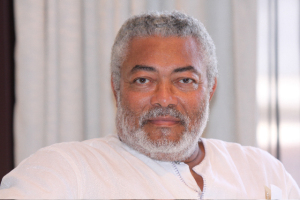
Those calling for the constitutionally stipulated age limit imposed on the Presidency to be lifted or quashed must first examine the question of whether, indeed, ours is a politically and morally competent and constructive instrument of democratic governance. Thus far and 26 years into the country’s Fourth-Republican dispensation, Ghanaian democracy continues to be seriously hobbled by the infamous Indemnity Clauses inserted into the 1992 Constitution to exclusively protect the criminal perpetrators of wanton acts of brutality and savagery committed by the operatives of the Rawlings-led junta of the so-called Provisional National Defense Council (PNDC).
In other words, a Constitution that practically and morally lacks the requisite and desired integrity must first be retooled in order to make it more acceptable to the overwhelming majority of the Ghanaian citizenry, before we can begin to meaningfully discuss and decide the question of whether the current presidential age limit has any worthwhile or progressive purpose. But, of course, one does not need a college degree in political science to come to a full realization and recognition of the fact that fielding under-40-year-old citizens as Heads-of-State or Presidents of Ghana is absolutely no magic bullet to solving the behemoth or hydra-headed problems facing our nation.
We have witnessed the largely under-40 junta of the Jerry John Rawlings-led Armed Forces Revolutionary Council (AFRC). Likewise have we endured the untold brutalities visited on us by the Rawlings-led so-called Provisional National Defense Council (PNDC). And so it can clearly be seen that the issue at stake here is not one of age but that of creativity, talent, determination and visionary leadership. Lowering the age limit for the Presidency to 35 years old, for example, which is what pertains to the United States, or even 25 years old, or even no limit at all, would not necessarily enhance the talent pool of a nation in which most of our youths are more poised towards devising a means of getting rich overnight at the expense of the Ghanaian taxpayer or, properly speaking, our national treasury, than sacrificing for the steady and long-term socioeconomic and technological advancement of the country.
We just recently witnessed unarguably the most administratively bankrupt government in the entire postcolonial history of Ghana, namely, the John Dramani Mahama-led regime of the National Democratic Congress (NDC), with the average age of cabinet appointees well below or at the most scarcely above the 40-year-old magical number. First, let us critically examine the executive performance of the Okudzeto-Ablakwas of both the Mahama regime and, before the latter, that of the Atta-Mills-led government of the National Democratic Congress. We could then meaningfully compare the qualities of the preceding two NDC-sponsored regimes with that of the John Agyekum-Kufuor-led government of the New Patriotic Party (NPP). And then on a balance, we could begin to reliably envisage what a government led by genius teenage Ghanaian leaders would look like.
Americans have a maxim which says that “Age is just a number.” I suppose those advocating for the removal of the presidential age limit had this maxim foregrounded in their frontal lobe when they made such suggestion. You see, I tend to see the conundrum of our apparently woeful lack of visionary leadership more in terms of our cultural mindset and the present quality of public education in the country than anything else. And I would not be the least bit surprised, if it turns out that most Ghanaian citizens, especially those at home, have so soon and sadly forgotten that it was scarcely two or three years ago when a renowned firebrand, young private legal practitioner took a meticulous headcount and came to the curious, but not altogether flabbergasting, discovery that about 80-percent of the cabinet appointees of former President John Dramani Mahama were college students enrolled in various disciplines at several of our public and private local academies.
In other words, for most of his tenure as the substantive President of the Democratic Republic of Ghana, Mr. Mahama ran the business of the Ghanaian taxpayer and citizenry, at large, with part-time workers hired at full-time employees’ salaries. And the most significant fact to observe here is that a critical mass or remarkable percentage of these executive hires were of the under-40 type. So clearly, what is inescapably at stake here is not one of age or the limitation thereof, but rather attitude and temperament or mindset. Age does not factor into the proverbial equation any significantly, when the overriding factor vis-à-vis the developmental stasis of the country is indisputably one of corruption. But why throw youthfulness into the mix at all, when we all, to a person, know that a much younger President John Dramani Mahama has already and more than amply demonstrated that he is absolutely no match for a much older, and some cynics even claim clinically senile, President Addo Dankwa Akufo-Addo, when it comes to the critical question of administrative competence and a relatively tolerable level of corruption?
I am not saying that we ought not to take a hard look at the presidential age limit, with the practical possibility of lowering the same, in order to healthily augment the talented and visionary leadership pool of the country. What I am saying here is that desperation ought not to be appropriated as a template or mensural instrument in our avid search for visionary and progressive leadership. It is all about critical thinking and civic responsibility.
*Visit my blog at: kwameokoampaahoofe.wordpress.com Ghanaffairs
The views expressed by this author remain solely their own and are not to be taken as the view of the Editorial Board of www.africanewsanalysis.com, www.zongonews.com and ZongoNews Radio & TV
